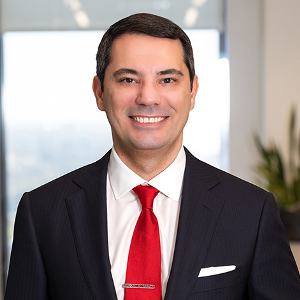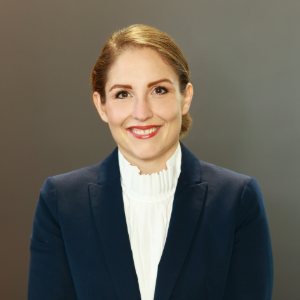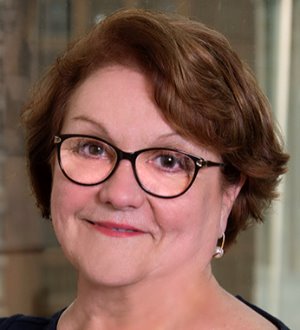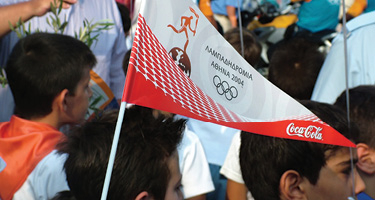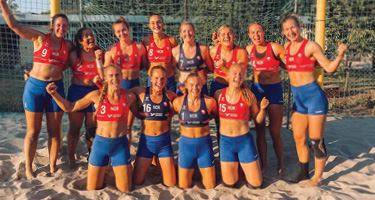This article was originally published on 9/23/21 and was updated on 2/7/22
Throughout the recent Tokyo Olympics, viewers were blanketed with innumerable uplifting messages from sponsors celebrating athletes, teams and entire nations. It’s a big business—and like the events themselves, the barriers to entry are high.
The “Olympic properties” include the famous five interlocking rings symbol, a flag, motto, anthem, identifiers (such as the designation “Olympic Games”), emblems, torches, even the Olympic flame—and the International Olympic Committee (IOC), the Games’ governing body, has special means at its disposal to protect these properties worldwide.
The 1981 Nairobi Treaty, which is administered by the World Intellectual Property Organization (WIPO), requires each state that has ratified it to refuse or invalidate any registration of the Olympic symbol and to prohibit its commercial use without IOC authorization. In addition, many countries—including those that have hosted the Games—have in place permanent national legislation protecting the Olympic properties.
Olympics-specific legislation got its start ahead of the 1976 Winter Games in Montreal. The Canadian Olympic Act of 1976 provided specific trademark protection for the Olympic properties (as well as the phrase “Montreal 1976”) and addressed the production and use of commemorative coins and stamps. Over time, such legislation has become increasingly complex to combat ambush marketing, particularly in the internet and social-media age.
The IOC owns many trademark registrations related to the Olympic properties overall as well as to specific iterations of the Games. National Olympic committees, which have a legal duty to the IOC, also own certain related trademark rights. The Canadian Olympic Committee (COC), for example, has more than 300 marks on the Trademark Register, including TOKYO 2020 and the Tokyo 2020 emblem—most of them official marks, which are afforded much broader rights than standard trademarks.
The Canadian Olympic Act of 1976 provided specific trademark protection for the Olympic properties (as well as the phrase ‘Montreal 1976’).”
Through Rule 40 of the Olympic Charter, the IOC governs how team officials, coaches, trainers and athletes use their person, name, picture or performance for advertising purposes during the Games. This enables the IOC to protect the appeal (and the value) of official Olympic sponsorship.
When a particular athlete’s sponsor is not an official Olympic sponsor, it may engage in advertising during the Games provided that the advertising is “generic,” has been consistently in the market for three months prior to the Games and is not run more frequently during them. To be considered generic, the advertising must not create any association, whether direct or indirect, between the sponsor and the Olympic movement, and must omit any reference to the athlete’s participation in the Games. These rules apply equally to social media content. Indeed, a sponsor is permitted only one social-media message congratulating the sponsored athlete during the Games, and even that missive must be generic (containing no photos or videos from the Games, for example). Athletes themselves face similar social-media restrictions regarding their sponsors during the Games.
In addition to the numerous ad restrictions, the IOC and national Olympic committees also expect timely and detailed notification of advertising plans so they can assess their compliance with Rule 40 and related guidelines. For smaller companies and athletes less certain to feature prominently during the Games, of course, it’s financially risky to devote resources to developing and submitting potentially expensive ad campaigns months in advance of the Olympics.
These seemingly innocuous posts can be interpreted as commercial in nature and in breach of Rule 40.”
The IOC’s desire to preserve the value of official sponsorship and curb ambush marketing is understandable. After all, national Olympic committees rely on sponsorship to support their teams and their country’s broader Olympic movement. As a result, potential sponsors must take great care before engaging in any advertising, especially on social media, if they’re not official sponsors and they operate in a jurisdiction (such as the United States) whose national Olympic committee aggressively enforces its trademarks and Rule 40.
Given the pervasive and unifying nature of the Games, one can easily imagine a company that isn’t an official sponsor posting congratulatory and celebratory messages to athletes (or entire teams) on social media along with hashtags such as #Olympics or # Tokyo2020 . These seemingly innocuous posts from a company’s official social-media account could nevertheless easily be interpreted as commercial in nature and in breach of Rule 40. Accordingly, the guidelines of national Olympic committees, including the COC, indicate that companies that aren’t official sponsors should refrain from making social media posts that that refer, directly or indirectly, to Olympic properties, including by way of hashtags.
Official sponsorship of the Games, however, is not a gateway to unregulated advertising and promotion. Companies that have spent something like $100 million to be an official sponsor for a four-year cycle have much more freedom to advertise during the Games and to make use of the Olympic properties. Even so, given the interest of the IOC in preserving the image, reputation and goodwill of the Games, even official sponsors are required to have their advertising and promotions preapproved by their national Olympic committee. Sponsorship, it seems, has become something of a full-contact sport—and the 2022 Beijing Winter Olympics are just around the corner. Let the Games begin.
Amalia Berg is a partner and heads the Intellectual Property Group at Goodmans. She is also a registered trademark agent. Amalia practises exclusively in the areas of intellectual property and technology law with an emphasis on trademarks, copyright and confidential information.
Jordan Scopa is a partner in the Litigation Group at Goodmans. He practises commercial litigation, with an emphasis on intellectual property disputes, including disputes relating to patents, trademarks and copyright. He also advises clients regarding the licensing of intellectual property and technology.




